At the young age of 80, I’ve noticed a surprising shift: tears come more easily than they used to, as if emotions have found a quicker path to the surface.
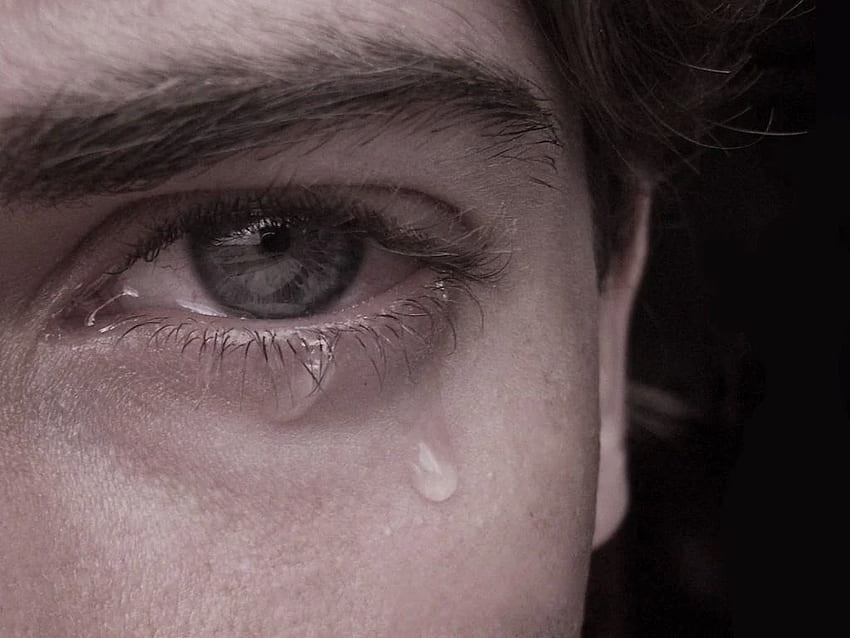
It does not take much for me to get teary eyed. I get gushy. Tears may roll down my cheeks. My breath shortens. I sometimes have to fight to choke back sobs.
But I want to be clear, I do not sob, bawl, openly weep, wail, or howl. I am not blubbering. I am not bursting into tears. I am not crying a river. I am not letting the floodgates open. Tears are not streaming down my face.
However, it seems that almost anything will bring a tear to my eyes, and then there is a good chance that one or two will roll down one of my cheeks.
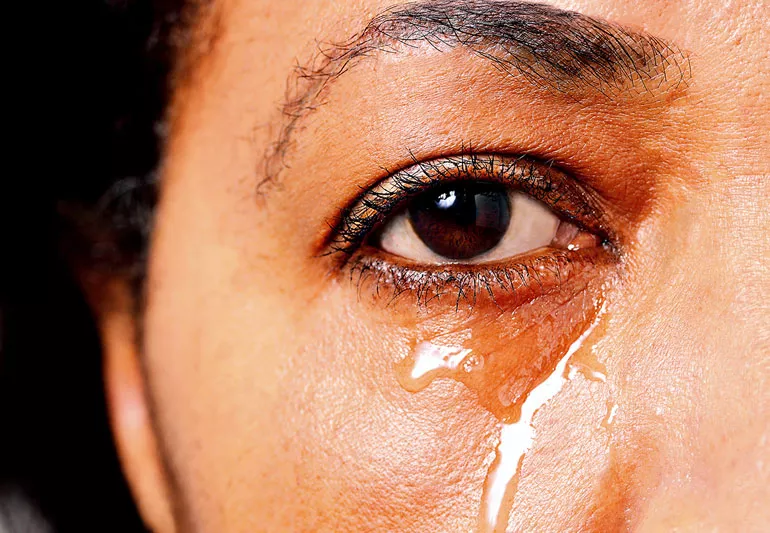
In the face of all these tearful moments, I have begun to ask myself — what is going on, why is this happening to me.
Let’s look at some of the instances where these teary-eyed moments occur. I have always been emotive, but it just seems that I am being even more so now.
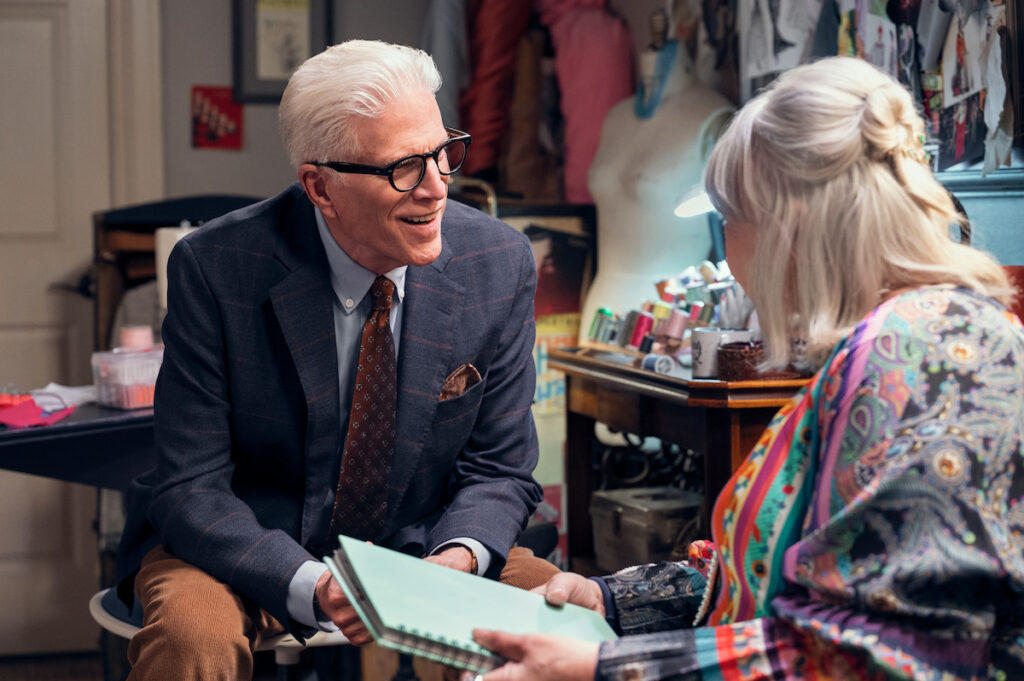
- During so many moments while watching a new series on Netflix, A Man on the Inside starring Ted Danson. For example, the moment that Danson speaks at the celebration of life ceremony for Florence; or the moment that he speaks with Gladys after she has entered the memory care unit of the senior citizen facility.
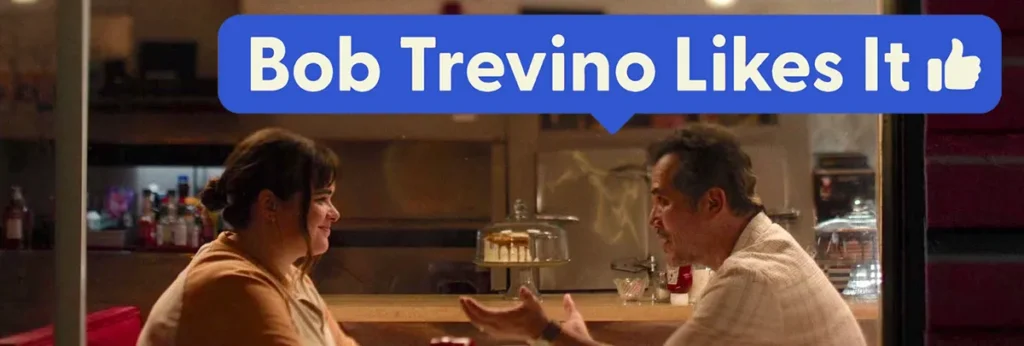
- Watching a movie at the recent Palm Springs International Film Festival. Four films really moved me. Each one moved me to tears.
- Bob Trevino Likes It
- The Last Journey
- Paper Flowers
- The Way, My Way
For example, Bob Trevino Likes It is a witty and touching story, where the young woman discovers that family is not just the people we’re born to but the connections we make along the way. Her surprising bond with a stranger challenges the traditional notion of family and shows us that love and understanding transcend biology.
This film left me reflecting on the unexpected relationships in my own life—those moments when strangers became friends and friends became family.

- Reading out loud on my podcast the last two paragraphs of my blog that were about my three-year-old granddaughter beating me handily in bowling. Here is what I wrote and said:
Edie wasn’t thinking about beating me; she was thinking about having fun. She wasn’t comparing herself to me; she was living fully in the moment. And isn’t that what life—at any age—is supposed to be about?
So yes, I lost to a three-year-old. And yes, part of me still winces at the thought. But a bigger part of me feels lucky—lucky to have been there, lucky to have shared that moment with her, and lucky to have been reminded that sometimes the best victories aren’t measured in numbers.
Next time we go bowling, I’ll still try my hardest. But I’ll also try to channel a little more of her unfiltered joy and maybe, just maybe, care a little less about the final score.
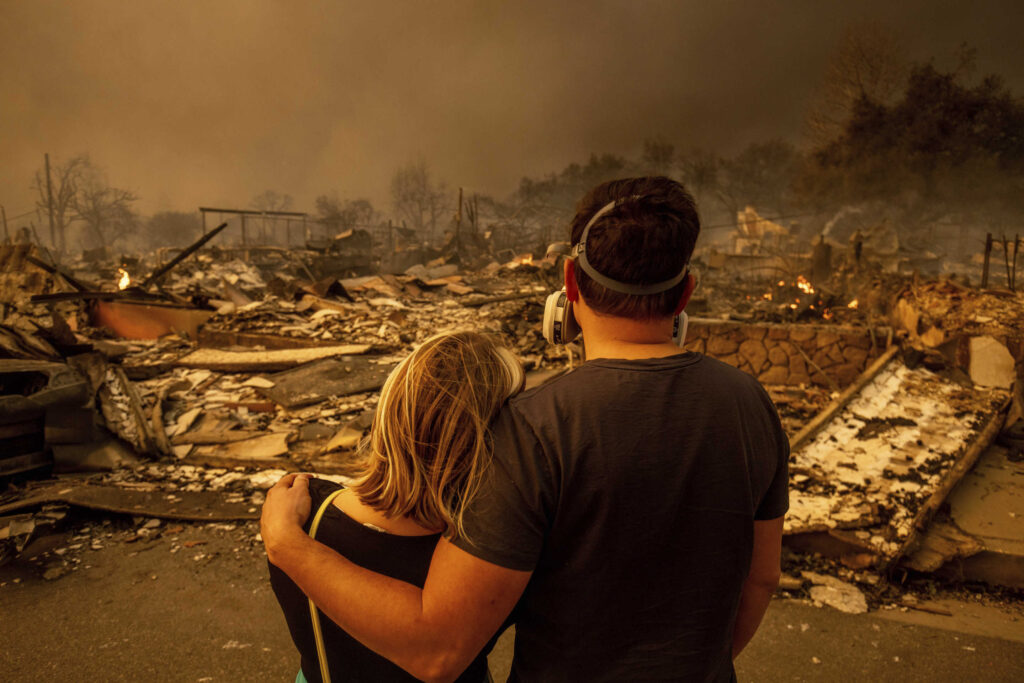
- Certain moments while watching on TV the travesty and utter devastation from the catastrophic wildfires in the Los Angeles area where I lived and worked for six years in the 90s. Several of the individual heartbreaking personal stories touched me, as has the raw emotion shown by some of the first responders, firemen and their leaders.

- Every time I give a speech. At some point during the speech, I always share the story of why I started the Edge Foundation some 20 years ago. As I do so, I inevitably break down a little bit, tears coming to my eyes, struggling to keep it together.
The day after I sold my company following a very eclectic, successful career, I was driving my at the time 17-year-old daughter Kelsey to school. She asked me what I was going to do next with my life. I told her I had no idea. I told her that I was looking for my next passion. After a long silence, my daughter piped up and said, “Dad, I know what you ought to do. You ought to do for other kids what you have done for me and my brother.”
I couldn’t speak I was so overcome. Kelsey had seen my future. It was so simple, so powerful. I decided right then to start a foundation to help young people with challenges similar to what my kids were faced with – being neurodivergent with a learning disability Dyslexia and ADHD.
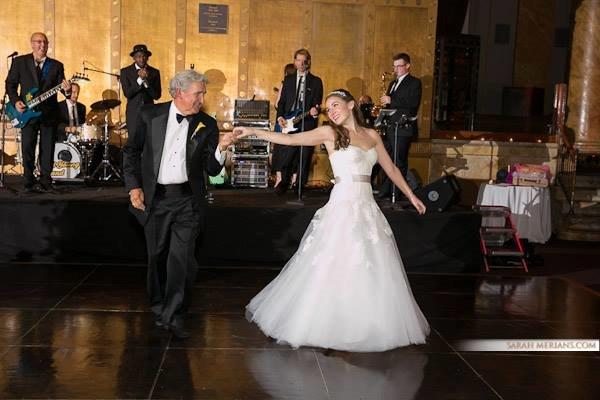
- Listening to a song or piece of music that brings back memories, such as My Girl sung by The Temptations. That was the song that my daughter Kelsey and I danced to as the father/daughter dance at her wedding some 10 years ago.

- When I take a moment to reflect and lament the passing of so many of my friends and relatives. And it is not just the passings, but it is also the movements into memory care. Very sad, and very real losses.
Frankly, I am not sure how to explore this phenomenon – tearing up at the drop of a hat.
- Clearly it is a moment of self-reflection. I am trying to keep track of when and why I cry, looking for patterns in what triggers my tears.
- I could do some research about the science and cultural history of crying.
-
- For example, consider if age-related changes in the brain, such as reduced inhibition or heightened empathy, might explain why I am more prone to tears.
-
- Another example, how different societies view crying—some celebrate it as a healthy emotional release, while others may stigmatize it, particularly for men.
- I could do some research on the psychological and emotional dimensions of crying.
-
- Why We Cry: Reflect on common emotional triggers for crying, such as nostalgia, gratitude, or unresolved feelings.
- Empathy and Sensitivity: As we age, do we become more attuned to the emotions of others, making their joys and sorrows feel more personal?
- The Cathartic Effect: Perhaps crying is a way of releasing the weight of accumulated experiences.
- I could explore the role of memory and reflection.
-
- At 80, I might be reflecting on life’s milestones, joys, and losses. This reflective state can naturally lead to tears as I revisit poignant moments.
- Nostalgia and Gratitude: These emotions often evoke tears because they are tied to deep, complex feelings of appreciation and longing.
- Another option is to talk to readers, friends, family, or even professionals to get their perspectives on crying. I’d like to hear from you—friends, family, and readers—about your experiences with crying. Do you find it cathartic? Embarrassing? Have you noticed changes as you’ve aged?
Bottom line. Crying may seem simple—a tear here, a sob there—but it carries profound meaning. It connects us to our past, our loved ones, and even our humanity.
I don’t have all the answers yet, but I’m eager to keep exploring. If you’ve noticed changes in how you cry, I’d love to hear your story. I would appreciate your thoughts.

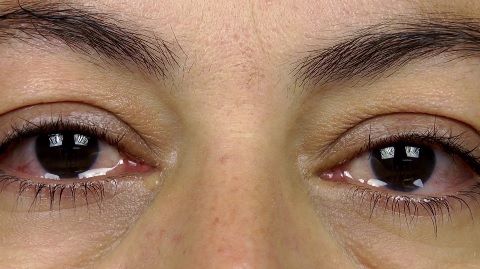
Hello again Neil-
I hear you because at 79 the same thing is happening to me — and it doesn’t take much for it to happen. One example is tearing up at symphony orchestra concerts at the wonderful outdoor venue for the Bravo Vail series here in Colorado, when they are playing something famous from composers like Mozart, Beethoven, or Tchaikovsky. This used to happen periodically, but now it seenms to be happenig rather often.
Neil I’m right with you! But then again, I’m Italian this is not a new phenomenon for me. I’ve been tearing up (literally crying) at the drop of a hat all my life at the simplest thing…just welcome to the club!
I grew up learning that crying was “wonderful.” My grandmother taught me that a “good cry a day cleanses the pores,” and, prophetically, the soul. (My addition, not hers) And over the years, I’ve learned that crying is a natural and physical demonstration of grief/sadness/joy/laughter/relief. Perhaps, it is as we get older (I”m now 82) that we have fewer filters on our demonstrative emotions, and so we can cry a lot more easily, and involuntarily. A good cry IS cathartic. I find myself crying frequently with grief (over loss of my husband/your friend), with grief and frustration and rage over current national (and local) politics, and with sadness that I am getting older by the day, something that never used to matter and now does. Anyway, my friend, cry on…..it is good for you!!
I grew up learning that crying was “wonderful.” My grandmother taught me that a “good cry a day cleanses the pores,” and, prophetically, the soul. (My addition, not hers) And over the years, I’ve learned that crying is a natural and physical demonstration of grief/sadness/joy/laughter/relief. Perhaps, it is as we get older (I”m now 82) that we have fewer filters on our demonstrative emotions, and so we can cry a lot more easily, and involuntarily. A good cry IS cathartic. I find myself crying frequently with grief (over loss of my husband/your friend), with grief and frustration and rage over current national (and local) politics, and with sadness that I am getting older by the day, something that never used to matter and now does. Anyway, my friend, cry on…..it is good for you!!
At Christmas this year,I indicated I wanted to say grace. All got quiet and before I could start, tears flooded out over the joy of spending 85 years with our family I’m a slob